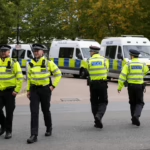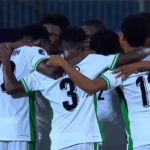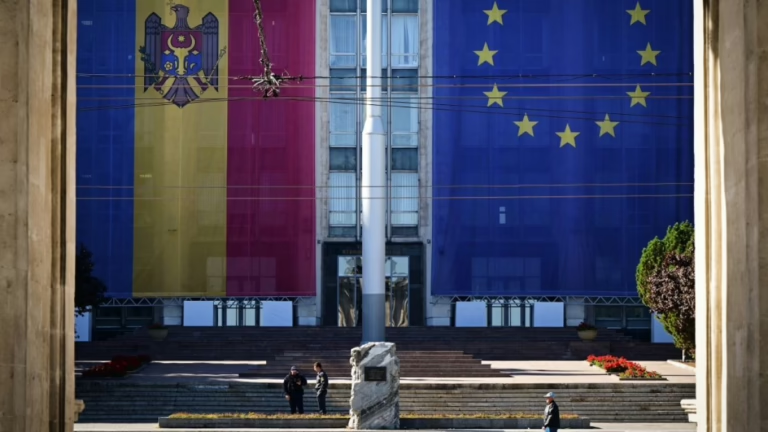On September 28, Moldova’s pro-European Party of Action and Solidarity (PAS) secured a decisive victory in the general elections, overcoming the Russia-aligned Patriotic Electoral Bloc (PEB) and signaling a significant shift in the region’s geopolitical landscape.
Throughout post-Soviet Eurasia, Russia’s influence is waning amid its ongoing military campaign against Ukraine. Ironically, Moscow’s 2022 large-scale invasion aimed to reinforce its dominance over what it terms the “near abroad.” Yet, more than three years later, this approach has clearly faltered.
Governments and leaders-whether democratic or authoritarian-are increasingly distancing themselves from Moscow’s orbit.
In Moldova, PAS’s strong performance defied expectations of a close contest. Prior to the vote, pro-Russian factions within the PEB seemed to gain traction amid a divided society and economic uncertainty. However, internal disputes within the PEB surfaced by late summer, weakening their position.
Russian attempts to influence the election through social media campaigns-portraying PAS as a Western puppet intent on dragging Moldova into conflict with Russia and stoking fears of economic collapse and Romanian annexation-ultimately backfired.
Authorities banned two overtly pro-Russian parties over allegations of illicit funding, and the government successfully extradited fugitive oligarch Vladimir Plahotniuc from Greece, accused of orchestrating a $1 billion bank fraud in Moldova.
This political drama galvanized the Moldovan diaspora in Western countries, staunch supporters of EU integration. Consequently, PEB and other opposition groups only maintained strongholds in the Gagauz region and Transnistria. Although PAS’s vote share dipped slightly by nearly 3 percent compared to 2021, it still dominated with 50.2 percent, while PEB garnered 24.4 percent.
Had Russia refrained from meddling, pro-Moscow forces might have mounted a stronger challenge. The opposition missed the chance to focus the election debate on economic issues and governance quality. Once the contest framed itself as a choice between the EU and Russia, PAS gained a clear advantage.
PAS can claim credit for advancing Moldova’s EU accession process, with formal talks set to begin in June 2024-a move broadly supported by the population. Nearly two-thirds of Moldovans favor EU membership, unsurprising given the EU’s role as Moldova’s largest trading partner and primary export market. This pro-European sentiment appears irreversible, and even a PEB-led government would likely maintain a similar trajectory.
Similar trends away from Russia are evident in the South Caucasus. Armenia, historically reliant on Moscow’s strategic and economic support, has pivoted westward after Russia’s failure to support it during Azerbaijan’s 2022 reclamation of Nagorno-Karabakh.
This setback opened the door for Armenian Prime Minister Nikol Pashinyan to engage diplomatically with both Azerbaijan and Turkey. A peace agreement between Baku and Yerevan is currently under negotiation, with former U.S. President Donald Trump eager to claim credit for its conclusion.
In early 2024, Armenia suspended its membership in the Russian-led Collective Security Treaty Organisation and strengthened defense ties with France.
Azerbaijan, meanwhile, has experienced heightened tensions with Russia, notably in 2024 following the downing of a passenger plane over the Caspian Sea and the detention of Azerbaijani citizens in Yekaterinburg, escalating into a diplomatic crisis.
Russia once maintained regional influence by mediating between Armenia and Azerbaijan, but it has now alienated both, allowing Turkey and the United States to fill the power vacuum.
Among South Caucasus nations, only Georgia shows signs of leaning toward Moscow. This alignment stems largely from the ruling Georgian Dream party and its informal leader, billionaire Bidzina Ivanishvili, clashing with the EU over democratic reforms. However, Georgia has not abandoned its EU aspirations; rather, it resists the EU’s democratization demands, which have lost momentum under Trump’s influence. Instead of fully aligning with Russia, Tbilisi is balancing relations among Europe, the U.S., and China.
Central Asia has long embraced a “multivector” foreign policy. The war in Ukraine has heightened concerns about Russian encroachment, prompting these countries to deepen ties with China as a counterbalance.
China’s economic presence in Central Asia has expanded significantly. It is the region’s largest investor, with its share of total trade among the five Central Asian states rising from 17.7 percent in 2020 to 24.1 percent in 2024. Turkmenistan (55 percent) and Kyrgyzstan (35 percent) lead in Chinese trade dependence.
Diplomatically, China has intensified engagement: the first China-Central Asia summit was held in Xi’an in May 2023, followed by a second in Astana in June 2024, where a treaty on “permanent good-neighbourliness, friendship, and cooperation” was signed.
China has also increased its role in security matters traditionally dominated by Russia, including counterterrorism, border control, and combating transnational crime. For Central Asian governments, this partnership offers valuable support against internal challenges. The old notion that Russia supplies military strength while China provides financial backing no longer holds true.
Russia is clearly displeased but finds itself constrained by growing dependence on China, a relationship intensified by the Ukraine conflict and subsequent Western sanctions. Russian President Vladimir Putin’s attendance at Beijing’s September 3 military parade commemorating the 80th anniversary of World War II victory-where China’s role was prominently highlighted-illustrates the asymmetry of this alliance. Leaders from the five Central Asian republics and Belarus were also present.
Nonetheless, Central Asian states retain considerable autonomy. Scholars caution against oversimplifying the region as a new “Great Game” dominated by external powers. Local actors skillfully navigate between major players to safeguard their interests and maximize benefits.
Europe remains an important player as well. The EU accounts for roughly 23 percent of Central Asia’s combined trade. While some European goods are re-exported to Russia to circumvent sanctions, this does not explain the entire trade volume. EU diplomatic efforts are intensifying: French President Emmanuel Macron’s 2024 visit to Kazakhstan included discussions on civilian nuclear cooperation, and in April, European Commission President Ursula von der Leyen and European Council President Antonio Costa attended the inaugural EU-Central Asia summit in Samarkand, Uzbekistan.
The repercussions of Russia’s invasion of Ukraine are profound and enduring-not only for Russia itself but also for its neighboring countries, Europe, and China. We may be witnessing the gradual erosion of Russia’s once-dominant influence over its “near abroad.” While Russian presence will persist in Moldova, the South Caucasus, and Central Asia, its power is undeniably diminishing.

















